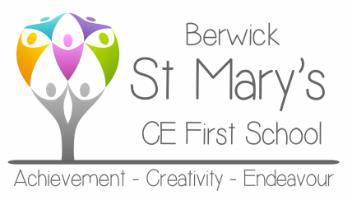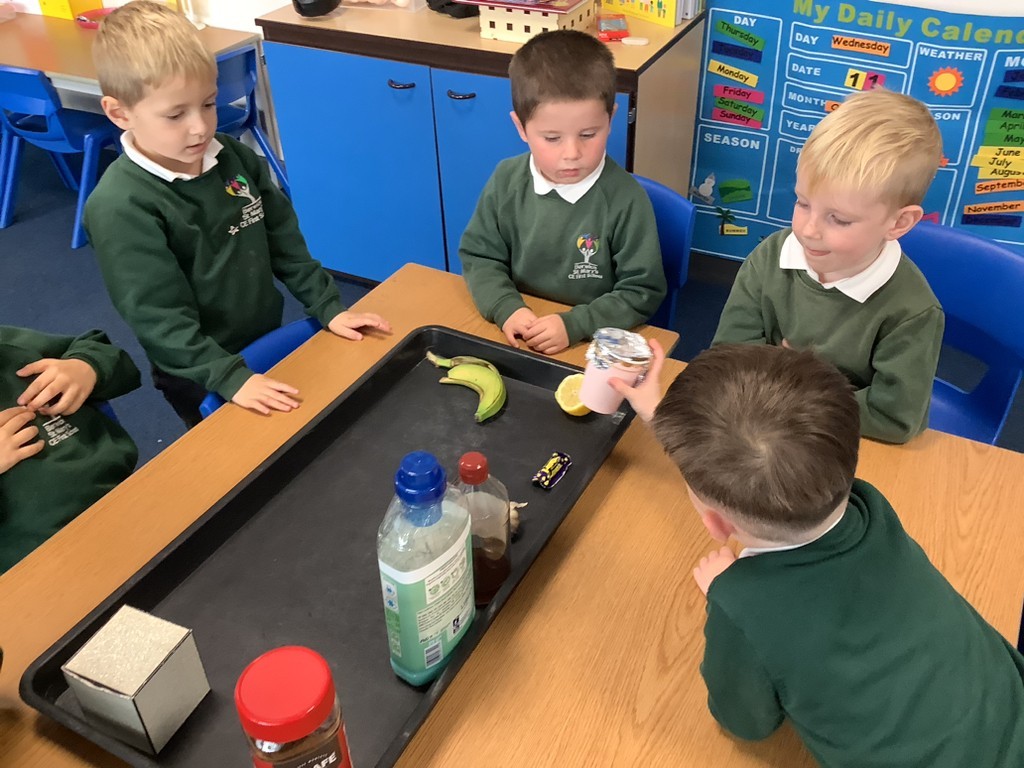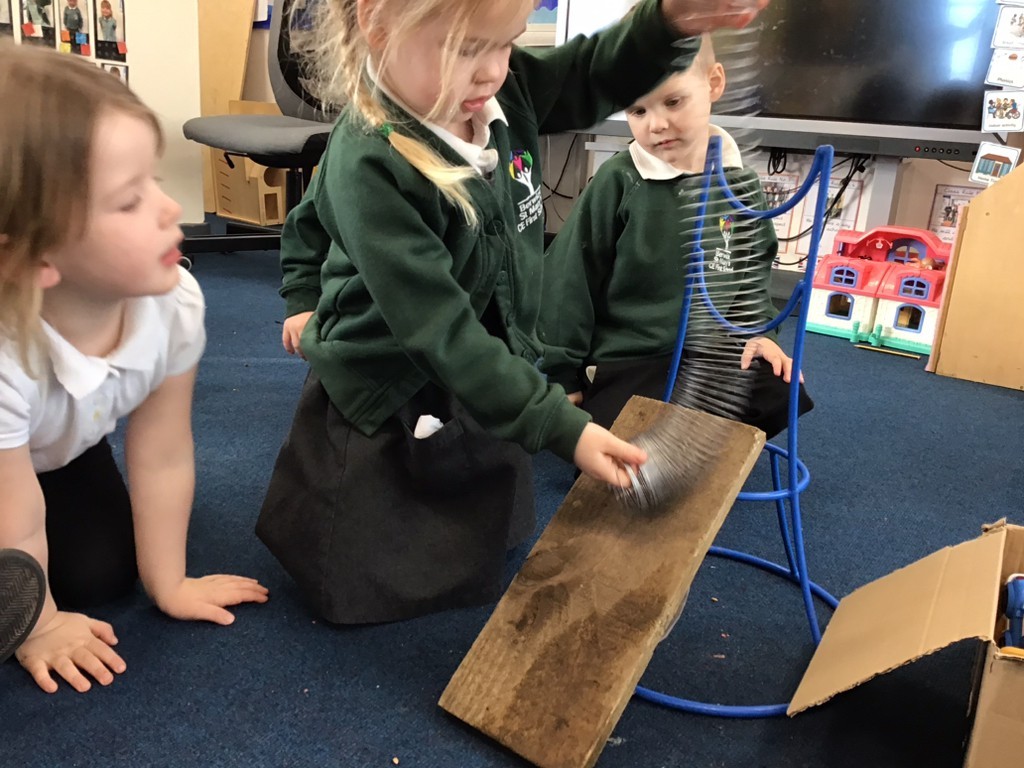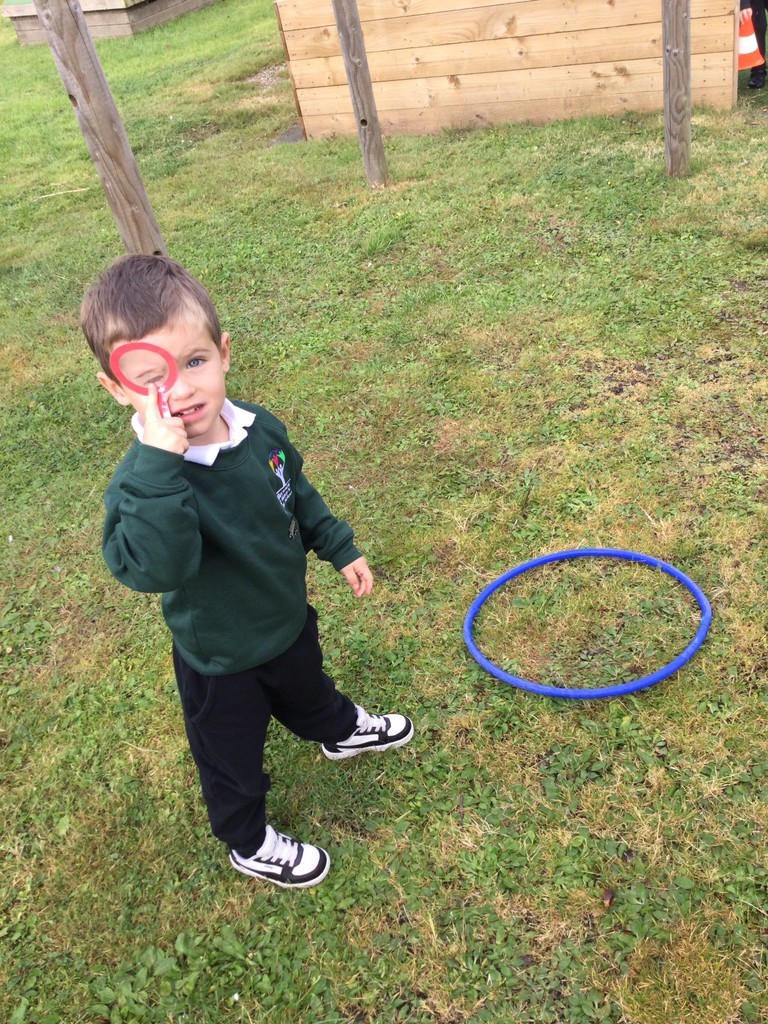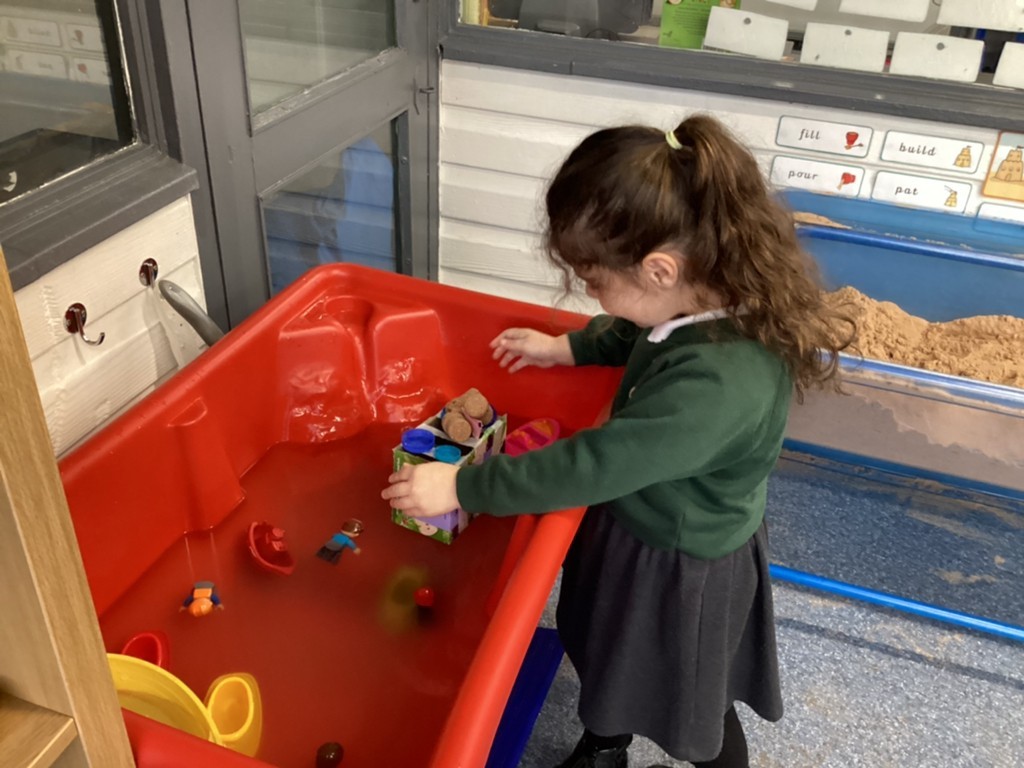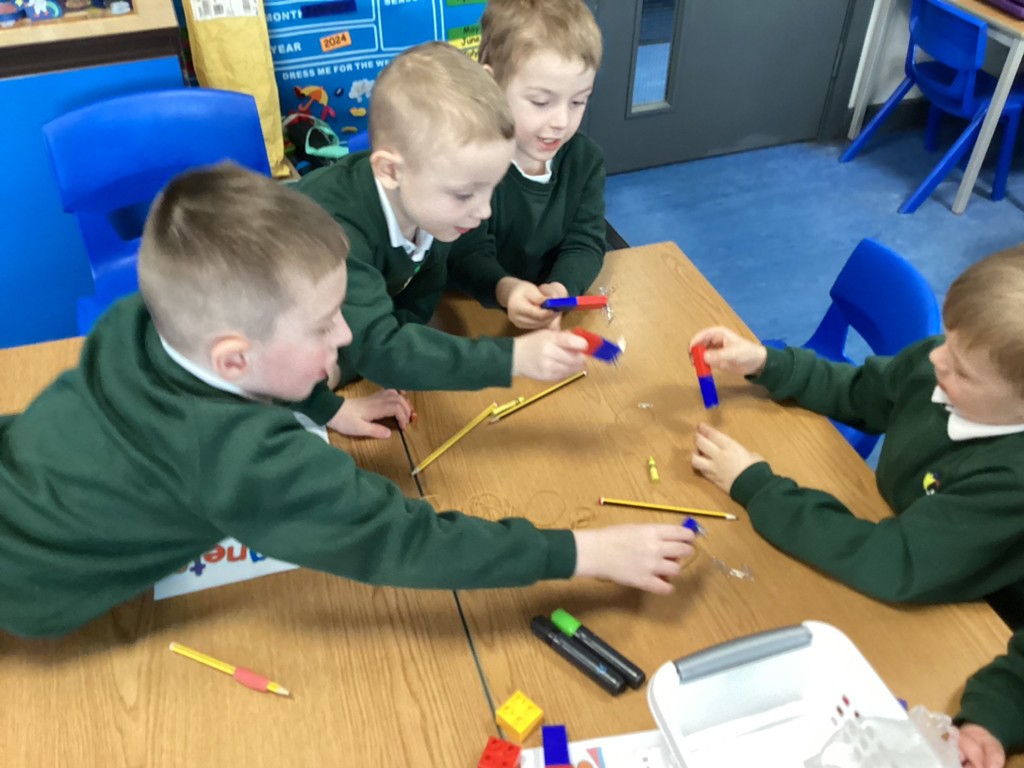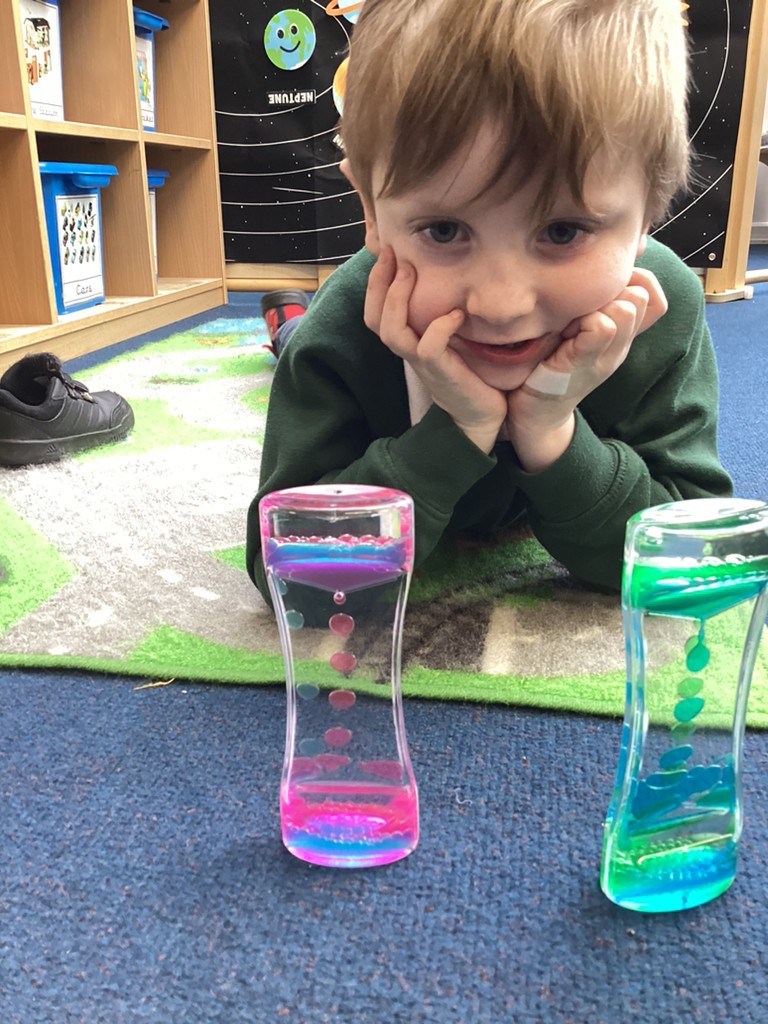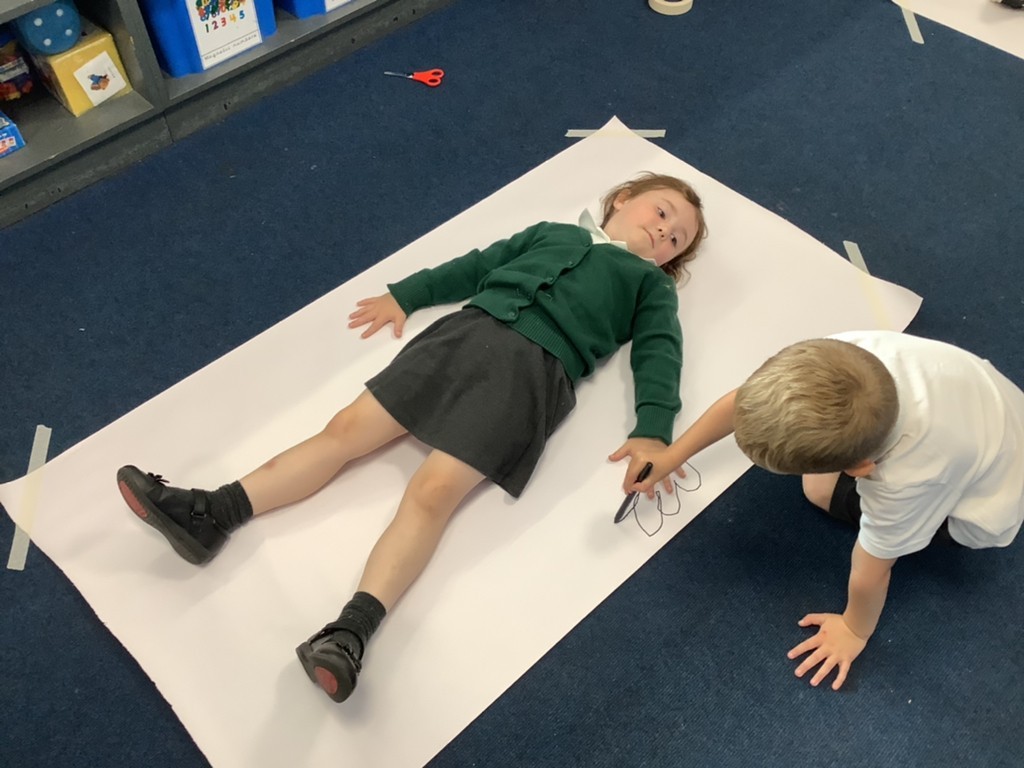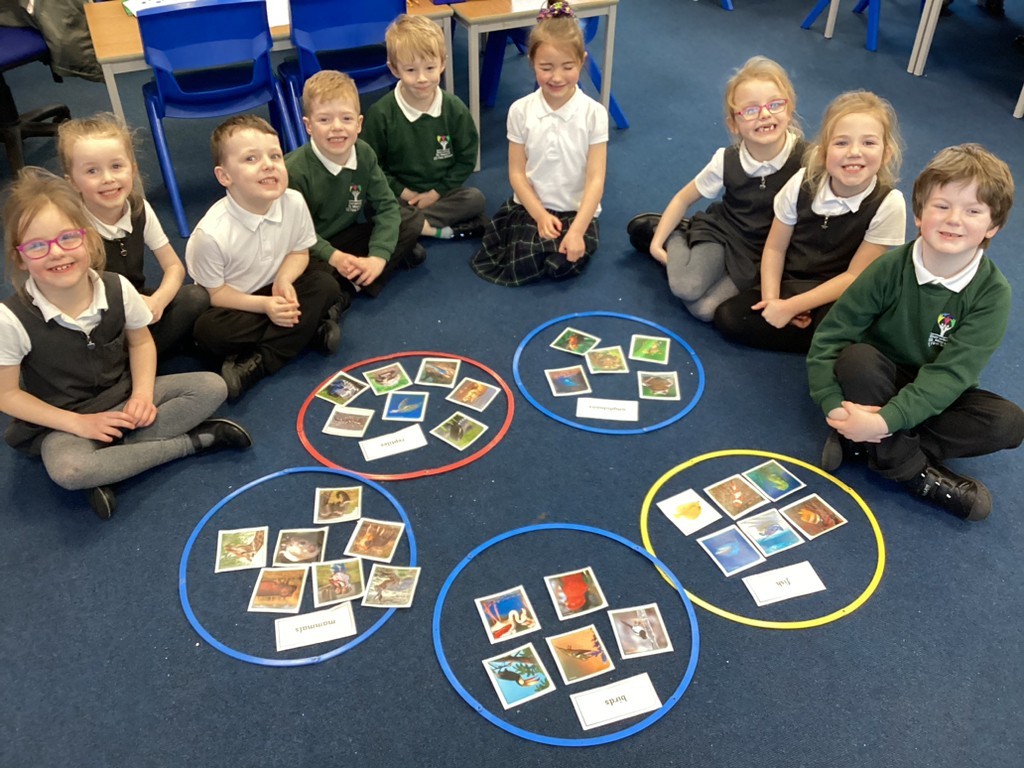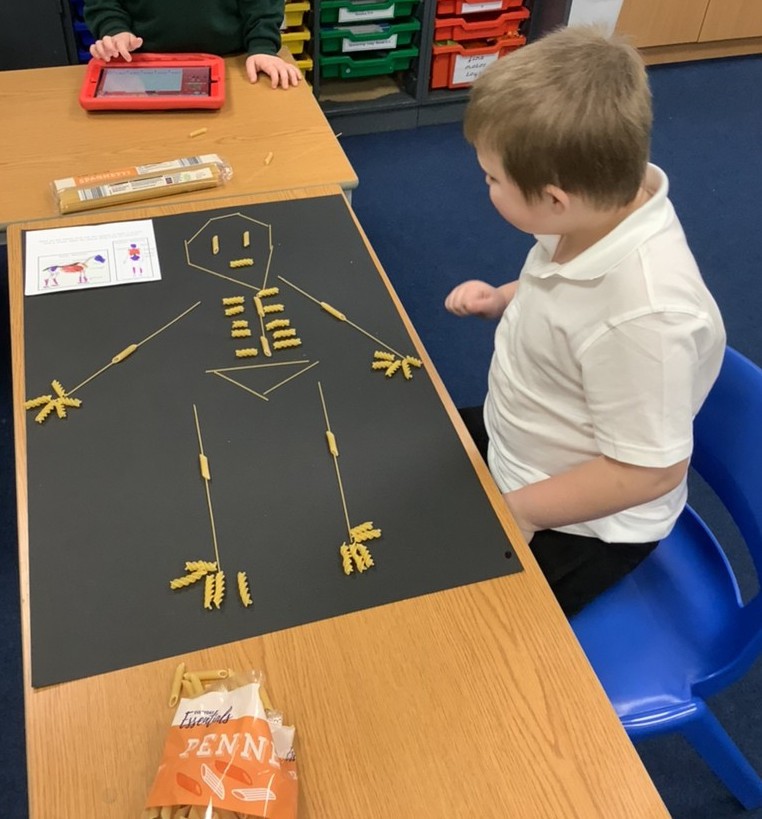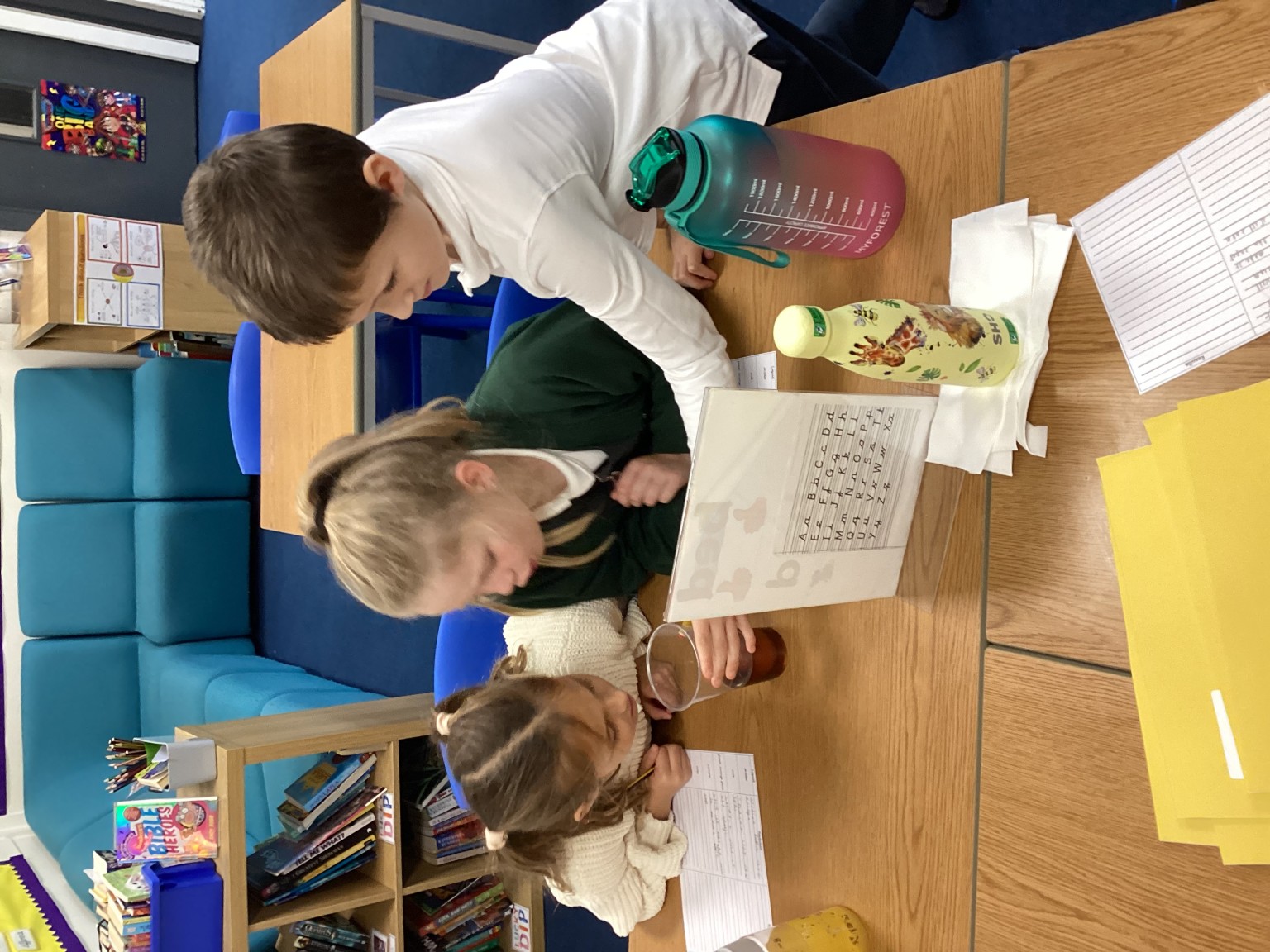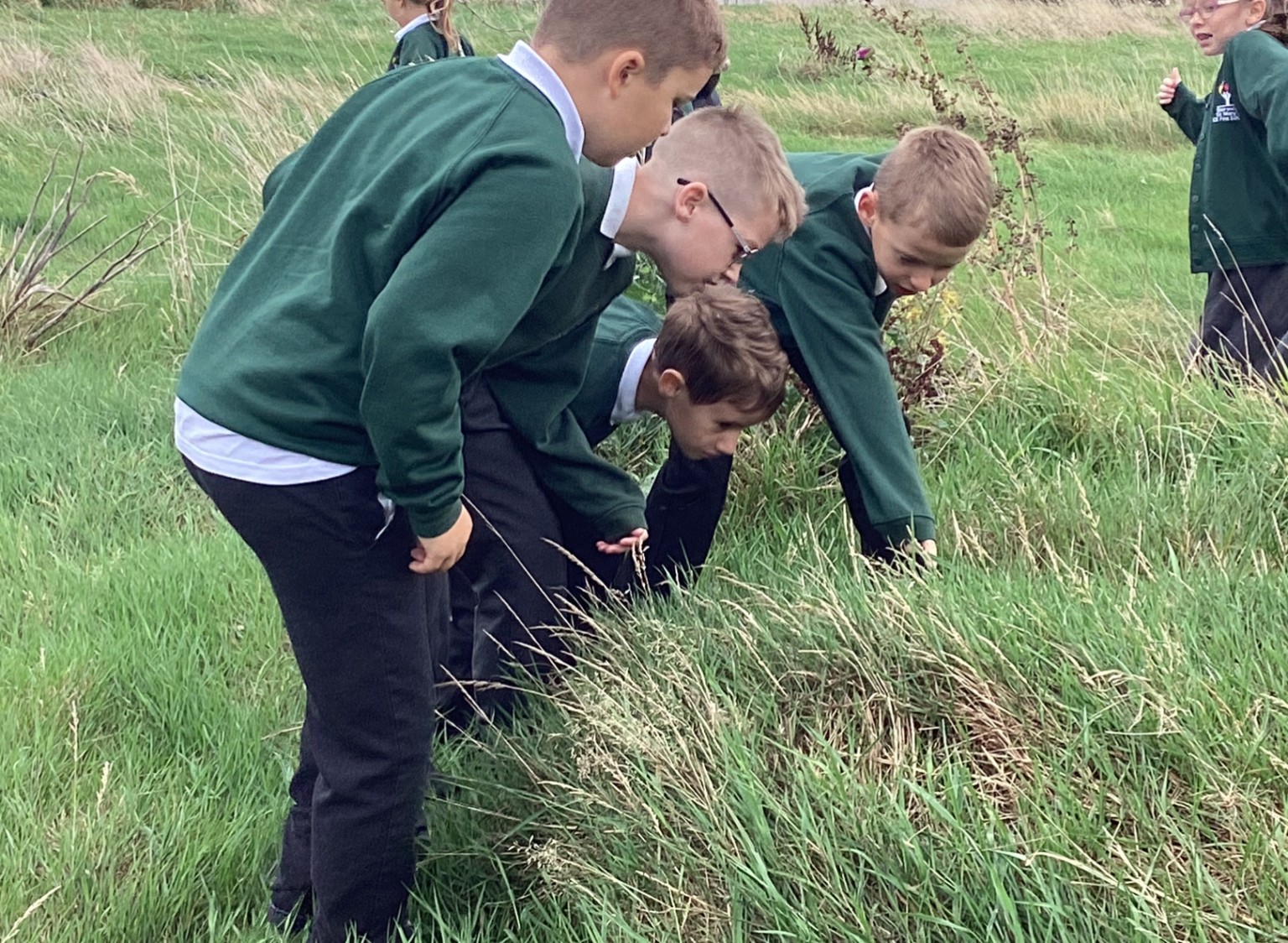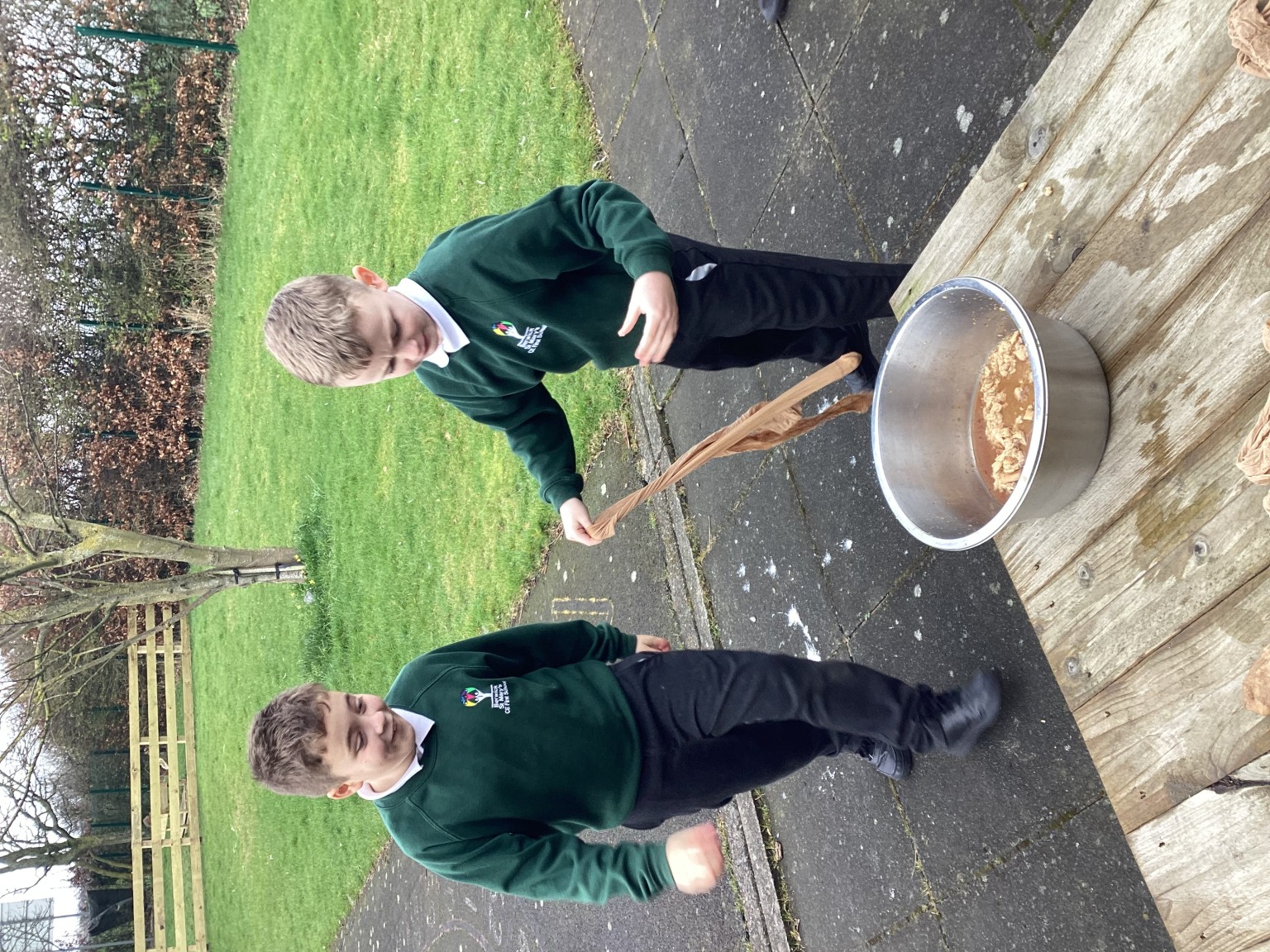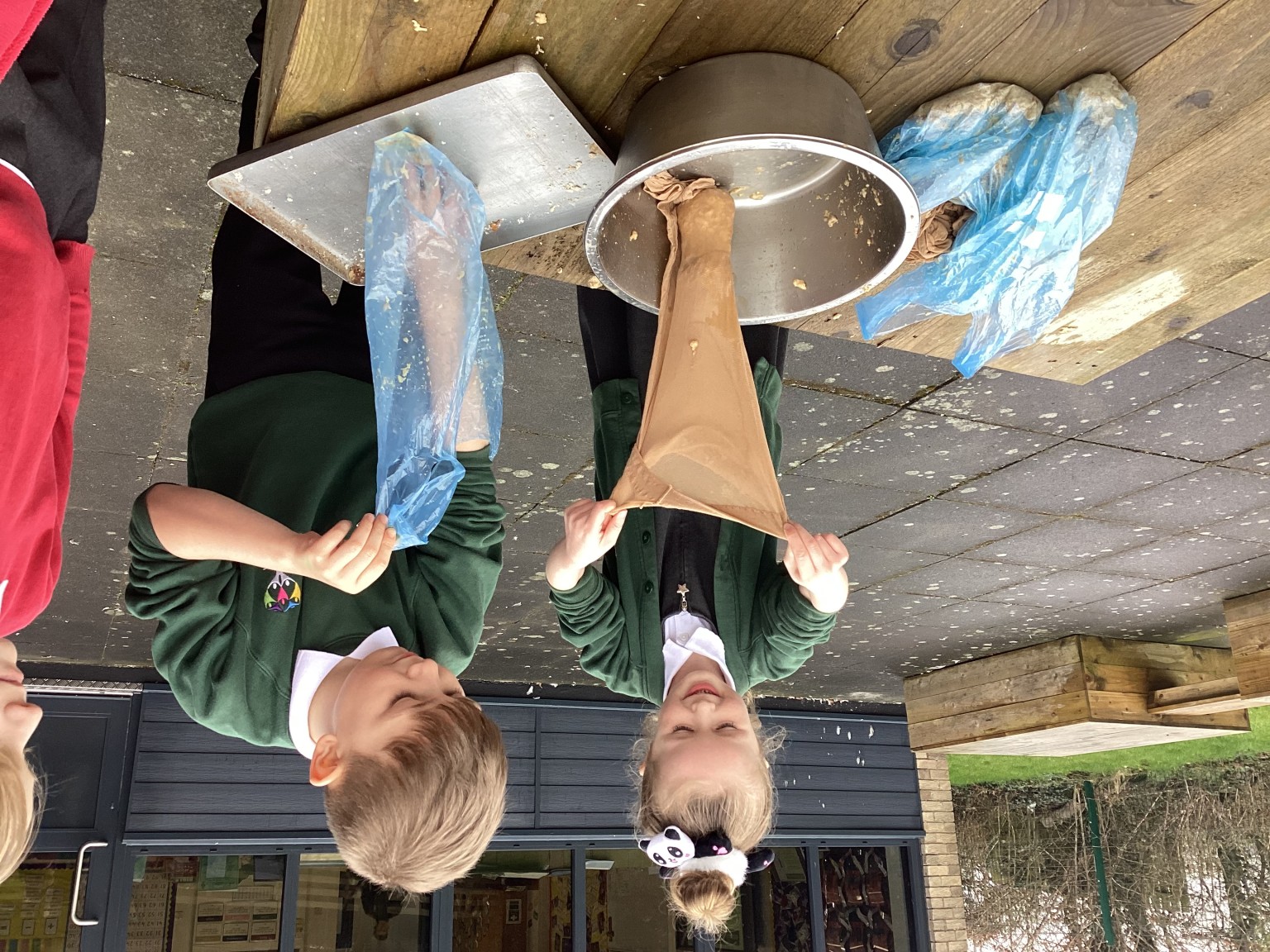‘The Lord has done this, and it is marvelous in our eyes.’ Psalm 118:23
Our Science lead is Mrs Oliver.
The purpose of science education in the National Curriculum is to provide the foundations for understanding the world through biology, chemistry and physics. Children should be encouraged to understand how science can be used to explain what is occurring, predict how things will behave, and analyse causes. The aims if the National Curriculum are that all pupils develop scientific knowledge and conceptual understanding, develop understanding of the nature, processes and methods of science and that they are equipped with the scientific knowledge required to understand the uses and implications of science, today and for the future.
At St Mary’s the relevant programmes of study are taught for each key stage. Where possible, science is linked directly to the current topic being taught; for example, as part of their topic about Ancient Egypt the children may investigate the human body or use electrical circuits to make lighthouses during a topic about the coast. Some cross curricular topics may actually be based around a particular science programme of study. By using a topic based approach we aim to deepen pupils’ understanding of how science is linked to the real world as well as providing more opportunities for writing across the curriculum.
Science teaching is detailed in our half termly curriculum maps.
Click here to view the full National Curriculum Programme of Study that we follow for Science.
At St Mary’s we teach our children to be inquisitive about Science and to be excited by the world around them, offering opportunities for curiosity and discovery for children to lead their own science investigations.
Science is delivered as a block across Key Stage 1 and Key Stage 2, and through ‘Understanding the World’ in our EYFS, which Science is taught weekly. The Science curriculum that we provide encourages the children to develop a sense of excitement and exploration about natural phenomena.
Within the Forest School sessions at St Mary’s, the children are provided with the unique opportunity to experience Science in action. This can be through both specific activities and incidental observations or experiences. As such, this allows our children to investigate scientific theories, pose questions in the context of a situation and highlights the role Science has in our everyday lives.
Scientific Enquiry
We teach our children to work scientifically by asking scientific questions, use scientific vocabulary, investigate a line of enquiry, analyse results and refer back to their predictions. Scientific enquiry is strand that is covered throughout each topic from EYFS to Year 4 that involves lots of ‘hands on practical’ approaches for the children to have first-hand experience of testing questions and hypotheses. As the children move through the year groups they are challenged to devise and complete their own scientific enquiries.
Cross-Curricular Learning
Science is part of our everyday life and develops skills with other areas of the curriculum. Many aspects of data handling and measurement in mathematics is used when completing investigations. Specific subject knowledge can also be linked across the curriculum, for example reversible and irreversible changes, this is explored through cookery. Deforestation in Geography and the researching and recording of information online and using equipment in Computing.
Vocabulary
At St Mary’s we support children to become good communicators and to develop an extensive range of vocabulary to ensure that the quality and variety of language that pupils hear and speak are key factors in developing their scientific vocabulary and articulating scientific concepts clearly and precisely. Being able to use and apply scientific vocabulary, enables the children to better understand the subject, the topic content and communicate their ideas accurately with others.
Early Years
In Early Years the children explore science in a variety of approaches. They are given a problem-solving task set from the class text. For example, the children explored the story of ‘Alice in Wonderland’. They shared their ideas to help the Mad Hatter find a suitable material that was waterproof to make a new hat. They were given a selection of materials and had to test them to identify if they were waterproof or not.
The children are set tasks to develop their own scientific investigation given variables to explore, for example when exploring forces the children could explore using either different cars (size and weight), different angles, height and length of ramps to carry out their own group investigation. This also linked to mathematical skills of measurement, counting and comparison of number.
Science investigations are set up each week with a link to the topic for children to explore, invent and develop learning, skills and knowledge through a ‘Diamond Challenge’ which supports independent learning and investigation.
Key Stage 1
Throughout Key Stage 1 the children investigate questions and hypotheses. For example in Year 1 the children investigated the hypothesis ‘You can’t identify objects using sense of smell’. The children had 6 mystery cups with 6 different items in for the children to explore and predict the item in the cup using only their sense of smell. The children recorded their predictions in their books.
The Year 2 set up an investigation to find out ‘How do germs spread?’ The children worked as a group to test different areas of the school where the most amount of germs would be found and which places and objects carried germs. When observing the germs the following week the children could then compare their predictions with the results.
The children have explored our school grounds identifying deciduous and evergreen trees, classifying and collecting data to find out what we have growing in school and recording results in a bar chart using ICT.
Key Stage 2
The children enjoy exploring our outdoor environment which offers many opportunities to explore Scientific questions. We investigated how humans can positively and negatively impact upon our world. We identified different environments and microhabitats, investigating plant life and animals that live there.
Children had a fantastic time exploring our digestive system and the process of the digestion of food using practical resources, such as tubes, a bag, coke cola, bread and tights! This science experiment provided the opportunity for children to discuss the digestion process, the path your food travels as it goes through the body and how long the process usually takes in a very visual way.
To investigate ‘Why do we have different types of teeth?’ the children created their own model of teeth using marshmallows, looking closely at the shape and size of each tooth and the purpose of use. They then conducted an experiment to find out the impact that different liquids can have on the enamel of our teeth.
In our topic on sound, the children chose an appropriate hypothesis to investigate how far sound travels outside e.g. ‘All sounds travel further than 1m in the playground’. The children decided that they could work with a partner and use different instruments to make sounds. One person made the sound while the other walked away until they could no longer hear it. They drew a line on the playground and measured the distance accurately in metres and centimetres.
The children went on to further explore about sounds travelling in waves and being caused by vibrations, they investigated how they could then hear those sounds. They used an interactive fact ‘hotspot’ on the board to find out how sounds travelled through the air into our ears then eventually turned into electrical impulses to be interpreted by our brains. They made models that included the outer ear (or pinna), auditory canal, ear drum, cochlea and the auditory nerve. They drew arrows to show the direction that the sounds travel in and then used their models to explain what happens to the sound at each part.
Our Science curriculum is broad and balanced and taught in a variety of ways including whole class lessons, collaborative small groups or individually, both in the classroom and outdoors. Links are made across different areas of learning to ensure that learning is maximised. We fulfil the requirements of the National Curriculum, as well as providing additional experiences through visits, visitors, the outdoors, and use of technology.
The school enjoyed a visit from Professor Brainstorm finding out about electricity and materials, looks like magic but it is Science!
We offer our children the opportunity to explore and engage in Science throughout the day using our ‘Playground Science bags’ and ‘Science in my Pocket’ bags which children can access as an indoor or outdoor activity and group work.
